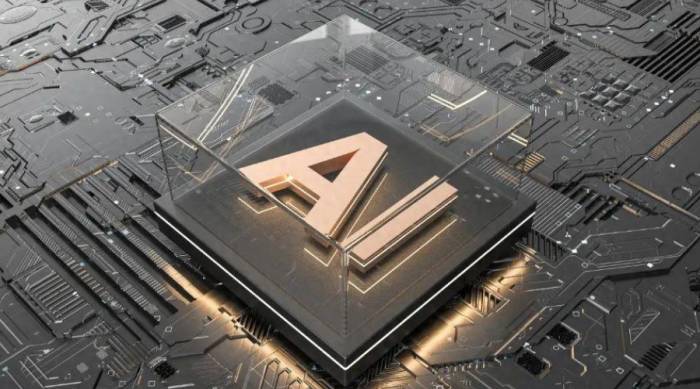Currently, there is still a gap in the domestic intelligent computing field.
Recently, China Mobile initiated the procurement of new intelligent computing centers for 2024 to 2025. The bidding announcement shows that the total scale of this project procurement reaches 8,054 units. The project is divided into two packages: Package 1 consists of 7,994 AI servers and supporting products, with the number of winning bidders ranging from 5 to 7; Package 2 consists of 60 white-box switches, with the number of winning bidders being 1. This is the largest single AI server procurement in the industry to date. Some institutions estimate that, according to the previous winning bids, the scale of this procurement may exceed 15 billion yuan.
The increase in intelligent computing power supply has become a certainty, and the performance of companies in the industry chain continues to improve. Recently, Deputy Minister of Industry and Information Technology Shan Zhongde stated that it is necessary to strengthen the leadership of intelligent computing, optimize the computing power structure, and encourage all parties to explore new models for the construction and operation of intelligent computing centers, including multi-party collaboration mechanisms, to make better use of intelligent computing power.
Advertisement
China Galaxy Securities believes that China Mobile's cloud business is developing rapidly, with a significant increase in intelligent computing scale in 2023. It is expected that in 2024, as AI applications continue to be implemented, the company's market share in intelligent computing is likely to increase. Considering that the price of GPU servers is higher than that of traditional servers, the higher unit value and industry demand make the cost of intelligent computing centers generally higher than that of traditional data centers, and the higher initial investment will increase the industry's entry barriers.
In the annual report recently disclosed by China Mobile, the company also emphasized its determination to focus on the AI field. China Mobile stated that the company has a valuable opportunity to accelerate the expansion of information services, especially with the rapid development of general artificial intelligence represented by AI large models, and "AI+" is driving the formation of a huge new blue ocean. The company will fully promote the extension and expansion from "5G+" to "AI+".
The development of AI is inseparable from the layout of infrastructure such as computing power. In this regard, China Mobile plans to initially build a nationwide computing power network with comprehensive leading technology and scale in 2024, covering all hub nodes of the national "East Data West Computing" with data center capabilities, accelerating the formation of an "N+X" multi-level, full-coverage intelligent computing capability layout, with the scale of intelligent computing power reaching 10.1 EFLOPS, a year-on-year increase of 206%.
The three major operators have successively opened bids.Less than a month ago, China Unicom also initiated the procurement of over 2,500 AI servers, while China Telecom had already taken action before that. With the three major operators launching large-scale bidding, it is seen in the industry that domestic computing power deployment has entered the "fast track."
Just two months ago, China Mobile also released the 2023-2024 New Type Smart Computing Center (Test Network) centralized procurement project, with 12 bid packages corresponding to a total AI training server procurement volume of 2,454 units (1-11 bid packages centralized procurement of 1,204 units, 12th bid package centralized procurement of 1,250 units).
At the end of March, China Unicom published the prequalification announcement for the 2024 China Unicom Artificial Intelligence Server Centralized Procurement Project. The announcement showed that the 2024 China Unicom Artificial Intelligence Server Centralized Procurement Project has been approved, with the bidders being China United Network Communications Group Co., Ltd., provincial branches, and Unicom Digital Technology Co., Ltd., among others. This time, China Unicom will purchase a total of 2,503 AI servers and 688 key networking devices, RoCE switches, without dividing the bid packages.

Last October, China Telecom also announced the review results of the AI Computing Power Server (2023-2024) centralized procurement project, with manufacturers such as Super Fusion, Inspur, and H3C being shortlisted, with a total of 4,175 AI servers and 1,182 switches procured.
The project is divided into four bid packages, namely, training-type air-cooled servers (Series I), training-type liquid-cooled servers (Series I), training-type air-cooled servers (Series G), and training-type liquid-cooled servers (Series G). Among them, the proportion of liquid-cooled servers is 25.25%, and the proportion of domestic servers (using Kunpeng processors) is 47.35%; in addition, a total of 1,182 InfiniBand switches are purchased for the Series I.
According to the review results, the total centralized procurement this time exceeds 8 billion yuan, among which: the bid quotes for Series I air-cooled servers are all above 5 billion yuan, with 7 candidates, namely Super Fusion, Inspur, Unisplendour, Ning Chang, ZTE, FiberHome, and Lenovo; the quotes for Series I liquid-cooled servers are all above 340 million yuan, with 4 candidates, namely Super Fusion, Inspur, Unisplendour, and Ning Chang; the quotes for Series G air-cooled are above 1.3 billion yuan, and the quotes for Series G liquid-cooled are above 1.47 billion yuan, with 8 candidates each, namely Huakun Zhenyu, Kunlun Technology, FiberHome, Baud, H3C, Xiangjiang Kunpeng, Digital China, and Yellow River Technology.
In the past two years, AI large models have emerged one after another, and the demand for smart computing has also grown rapidly. Market consulting firm IDC estimates that by 2026, China's smart computing power scale will enter the level of exaflops per second (ZFLOPS), reaching 1,271.4 EFLOPS. The "Action Plan for High-Quality Development of Computing Power Infrastructure" issued by the six departments previously clarified the construction pace of top-level computing power in the next three years. It mentioned that the smart computing construction gap for 2023-2024 is 23 EFlops. The national computing power target for 2025 exceeds 300 EFlops, with the smart computing proportion reaching 35%, and the smart computing power target is 105 EFlops.
At present, there is still a gap in the domestic smart computing field.


Comment